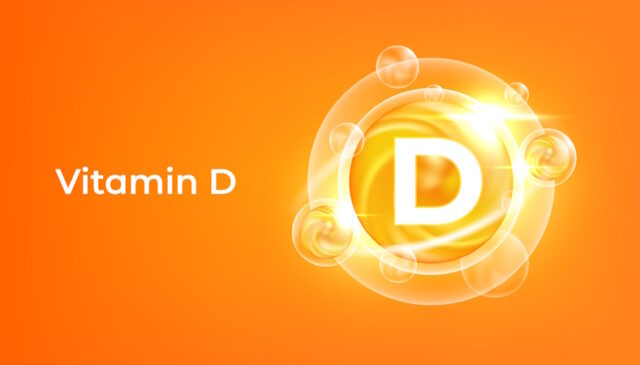
Vitamin D deficiency manifests in many ways that can be very detrimental to your well-being. If you experience any of the following: drastic mood changes, fatigue, bone, muscle weakness, muscle aches, or muscle cramps, you could be one of the 35% of Americans who have a vitamin D deficiency.
The Importance of Vitamin D
Vitamin D is one of many essential vitamins your body needs to stay healthy. It plays a crucial role in maintaining calcium and phosphorus balance in your body, which is vital for strong bones and overall skeletal health. Without sufficient vitamin D, your body struggles to absorb calcium effectively, which can weaken bones over time and lead to conditions such as osteoporosis and osteomalacia in adults.
Beyond bone health, vitamin D also supports immune function, muscle strength, and mood regulation.
It has also been suggested that vitamin D deficiency may be linked to a greater risk of chronic diseases such as diabetes, cardiovascular disease, and certain cancers. Given this broad impact on health, understanding the causes and symptoms of vitamin D deficiency is imperative.
Preventing and Treating Vitamin D Deficiency
If only one thing is gained from this article, it is how to treat a vitamin D deficiency. While there are many symptoms of vitamin D deficiency and many common causes, there are several sure ways to treat or prevent such a deficiency.
Preventing vitamin D deficiency goes beyond diet and sunlight exposure—it requires proper guidance from healthcare professionals such as nurse practitioners or graduates of online MSN FNP programs, as well as nutritionists and general physicians who understand its long-term effects. Here are some effective strategies to maintain adequate vitamin D levels:
Increase Sun Exposure
Spending at least 10–30 minutes outside in direct sunlight several times a week, depending on your skin tone and location. Midday sun exposure is the most effective for vitamin D synthesis. However, caution is advised, as overexposure can cause sunburns.
Consume Vitamin D-Rich Foods
Incorporate more fatty fish, fortified dairy products, egg yolks, and vitamin D-enriched foods into your diet.
Take Supplements If Necessary
For individuals who cannot meet their vitamin D needs through sun exposure and diet alone, supplementation may be necessary. The recommended daily allowance varies by age and health status, so it’s best to consult a healthcare provider for personalized recommendations.
Monitor Vitamin D Levels
Regular blood tests can help track your vitamin D levels, especially if you are at a higher risk of deficiency.
Common Causes of Vitamin D Deficiency
Several factors contribute to vitamin D deficiency, including lifestyle, medical conditions, and dietary habits.
Many adults spend most of their time indoors due to work or lifestyle choices, limiting sun exposure, especially during winter.
Individuals with darker skin produce less vitamin D from sunlight due to higher melanin levels, making them more susceptible to deficiency.
Dietary intake also plays a role—while vitamin D is found in fatty fish, fortified dairy, egg yolks, and mushrooms, those following vegan or vegetarian diets may struggle to get enough.
Obesity can further contribute to deficiency, as excess body fat sequesters vitamin D, making it less available for use.
Additionally, conditions like Crohn’s disease, celiac disease, and kidney or liver disease can interfere with absorption, while aging reduces the skin’s ability to synthesize vitamin D.
Symptoms of Vitamin D Deficiency
Vitamin D deficiency presents in various ways, ranging from mild to severe. Persistent fatigue, muscle weakness, and cramps may indicate low vitamin D levels. Since vitamin D aids calcium absorption, deficiency can lead to brittle bones and a higher risk of fractures, particularly in older adults. Mood changes, including depression and seasonal affective disorder (SAD), are also linked to low vitamin D. Additionally, weakened immune function can make individuals more susceptible to infections and illnesses.
Boosting Your Vitamin D
Vitamin D is an essential component of a well-functioning mind and body. Unfortunately, the demands of modern life often lead to a lifestyle that cannot obtain a necessary amount of this core vitamin. However, with conscious efforts to increase sun exposure, eat vitamin D-rich foods, and seek medical guidance when needed, individuals can take proactive steps to maintain optimal levels. Addressing vitamin D deficiency is not just about preventing immediate symptoms—it’s about safeguarding long-term health and well-being.
Disclaimer
The information contained in South Florida Reporter is for general information purposes only.
The South Florida Reporter assumes no responsibility for errors or omissions in the contents of the Service.
In no event shall the South Florida Reporter be liable for any special, direct, indirect, consequential, or incidental damages or any damages whatsoever, whether in an action of contract, negligence or other tort, arising out of or in connection with the use of the Service or the contents of the Service. The Company reserves the right to make additions, deletions, or modifications to the contents of the Service at any time without prior notice.
The Company does not warrant that the Service is free of viruses or other harmful components












